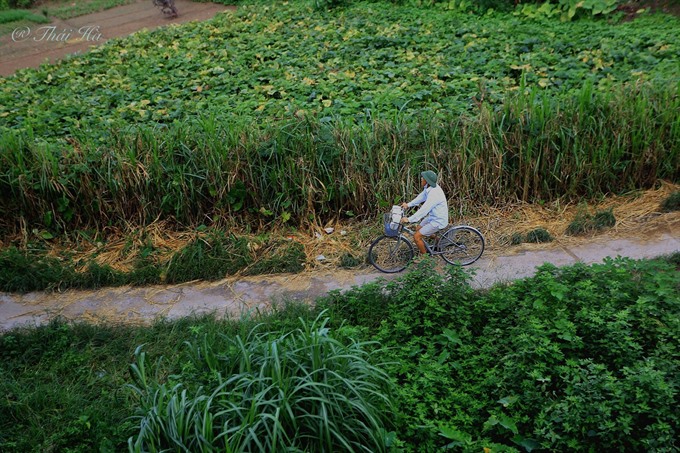 Society
Society

Residents living in outlying areas of Hà Nội have to face series of challenges brought by urbanisation, participants heard at a conference yesterday.
 |
| A view in the Long Biên outskirt area in Hà Nội. Outlying areas in Hà Nội supply the main source of food for inner parts and offer a clean and green space that helps protect the city’s environment. — VNS Photo Thái Hà |
HÀ NỘI -- Residents living in outlying areas of Hà Nội continue to face challenges brought by urbanisation, participants heard at a conference yesterday.
The conference agreed that new urban areas and industrial zones in the city’s outskirts have diminished agricultural land area.
The majority of inhabitants in outlying regions have lost their main income source, seriously affecting their livelihoods and forcing them to switch to other jobs.
Outlying areas in Hà Nội supply the main source of food for inner parts and offer a clean and green space that helps protect the city’s environment. Dwindling agricultural land has also discouraged the development of agriculture sector in these areas. Economic structures have been changed from agriculture to industry, construction, commerce and services, experts said.
This has led to narrowing down green space in the city’s outskirts, affecting quality of urban environment.
Dr Michael Di Gregorio, Asia Foundation’s country representative in Việt Nam, said that rapidly growing population in Hà Nội has increased pressure on land and water use, causing negative environmental impacts and cutting down food supply sources for the city.
To support farmers who lost their land to maintain their income, the Asia Foundation has collaborated with partners to implement transport, water supply projects or preserve green space along Đuống River with the aim of adapting to climate change, he said. The preservation will soon expand to the Hồng (Red) and Đáy rivers.
Experts said that the city needs to have plans to use land effectively to ensure livelihoods of dwellers after agricultural land withdrawal.
The solutions should encourage the use of “clean” agricultural land in urban construction projects.
Việt Nam Urban Planning and Development Association proposed giving “clean” agricultural land to cooperatives for clean vegetable planting, following VietGAP standards. There should be preferential mechanisms in investment on “clean” agricultural production projects.
Farmers who lost land due to urbanisation can enjoy 50 to 70 per cent reduction of land use tax in “clean” agricultural production projects, they said. -- VNS